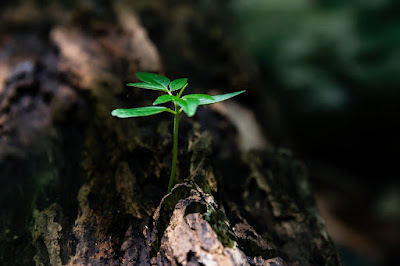The Surprising Benefits of Composting Your Food Scraps
Composting is the process of breaking down organic matter into nutrient-rich soil that can be used to grow new plants.
While it may seem like a small act and I personally has always been skeptical about it until now, composting your food scraps can have a big impact on the environment and your own well-being.
I suggest us exploring together the surprising benefits of composting your food scraps.
Reducing Waste
One of the most obvious benefits of composting your food scraps is reducing waste.
In the US, food waste makes up the largest portion of landfills. When food scraps are sent to landfills, they produce methane gas, which is a potent greenhouse gas that contributes to climate change. By composting your food scraps, you can help reduce the amount of waste that ends up in landfills and prevent the release of harmful greenhouse gases.
Improving Soil Health
Composting your food scraps can improve soil health by adding nutrients and organic matter to the soil.
This can help improve soil structure, water-holding capacity, and soil fertility. Composting also helps to balance soil pH levels, which can improve plant growth and productivity.
Saving Money on Fertilizer
When you compost your food scraps, you're creating your own fertilizer.
This means you can save money on store-bought fertilizers and reduce your carbon footprint by using natural, locally sourced compost. Composting is also a great way to reduce the amount of water you use on your plants, as compost helps retain moisture in the soil.
Reducing Water Pollution
When food scraps are sent to landfills, they can leach harmful chemicals and pollutants into the soil and groundwater.
This can have a negative impact on water quality and aquatic life. Composting your food scraps can help prevent water pollution by keeping organic matter out of landfills and providing a natural source of nutrients for plants.
Supporting Local Agriculture
Composting is not only good for your own garden, but it can also benefit local agriculture.
Many small-scale farmers rely on compost to fertilize their crops and improve soil health. By composting your food scraps, you can support local agriculture and help build a more sustainable food system.
Improving Air Quality
When food scraps are sent to landfills, they produce methane gas, which contributes to air pollution and climate change.
By composting your food scraps, you can help reduce the amount of methane gas produced by landfills and improve air quality in your community.
Building Community
Composting can also be a great way to build community.
Many cities and towns have community composting programs where residents can drop off their food scraps to be composted. These programs not only help reduce waste, but they also bring people together and foster a sense of community.
Improving Mental Health
Finally, composting can have surprising benefits for your mental health.
Studies have shown that gardening and being in nature can help reduce stress and anxiety and improve overall well-being. Composting is a great way to get outside and connect with nature, while also doing something positive for the environment and your own well-being.
As I said it above, composting your food scraps may seem like a small act, but it can have a big impact on the environment and your own well-being.
By reducing waste, improving soil health, saving money on fertilizer, and supporting local agriculture, composting can help build a more sustainable and resilient food system. It can also improve air and water quality, build community, and even improve your mental health.
So next time you're tempted to throw your food scraps in the trash, consider composting instead. Your garden, your community, and the planet will thank you.
(The image source is https://www.pexels.com/photo/selective-focus-photo-of-green-plant-seedling-on-tree-trunk-1151418/ )




Comments
Post a Comment